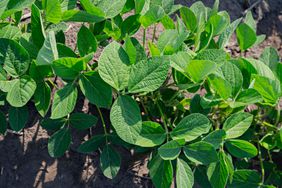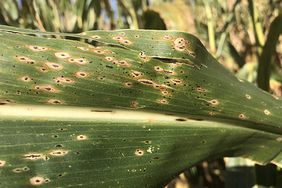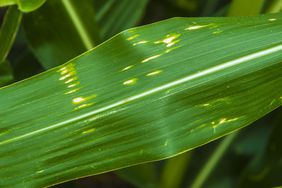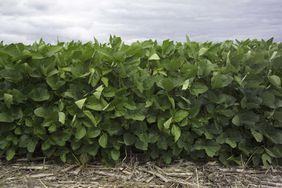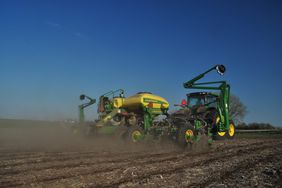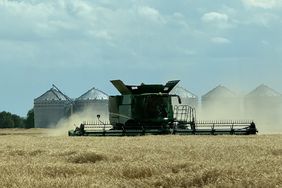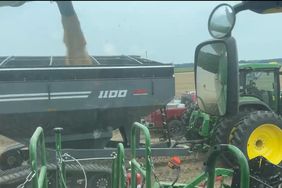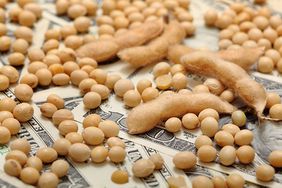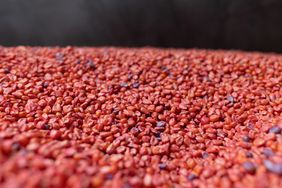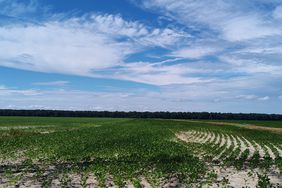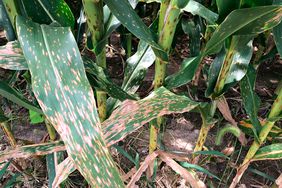:max_bytes(150000):strip_icc()/corn20drought2012-2f370350d0464df8b9b639c43534fe38.jpg)
After an early start to planting, May was warm and wet and in the Midwest. Fields dried, and planting resumed — just in time for the current heat wave.
Corn is at many different stages of development because of the wide range in planting dates. The recent high temperatures and no real break in the heat so far have generated questions about the impact of high temperatures on corn growth. How much heat stress can corn withstand without incurring major yield losses, even when adequate soil moisture is available?
The good news is: quite a bit at younger growth stages. “The whole question really is one of water,” says Emerson Nafziger, professor emeritus at the University of Illinois. “I know that we talk about heat because that’s what bothers people, but a corn plant at 100 degrees is not really suffering unless [it doesn’t] have access to a good water supply.”
While soil moisture may be available, compromised root systems from compaction, saturated soil, or late planting may have trouble accessing it.
“What we always hope when we get conditions like this is that we have a well-rooted crop so it can access the moisture that's there,” says Nafziger. “Some of our fields that will show drought stress in the afternoon as the wind blows and the evaporation rates go up are in soils with plenty of water there, six or eight inches deep, but with root systems just not capable of taking up water fast enough to meet demand.”
For corn planted at earlier dates, at later vegetative growth stages nearing pollination, heat can be a concern, says Chad Lee, Extension specialist at the University of Kentucky. “Corn that’s somewhere between V6 growth stage and right before tassel V12 and V13 is growing rapidly,” he points out. “When it grows rapidly, it needs water in that root zone to take up nutrients. Extended periods of very hot temperatures without rainfall leads to very dry soils more quickly and can slow that growth process a little.”
According to research from Iowa State University, four days of severe stress (i.e. corn wilted for four consecutive days) at the 12th–14th leaf stage have the potential to reduce yields by 5% to 10%. Kernel row numbers on the ear are determined by the 12th collared leaf stage, and the potential number of kernels per row is complete about one week before silking. Nafziger points out that there’s evidence that newer hybrids, which have been bred for stress tolerance, suffer less yield loss than the early work at Iowa State reported.
Seeing corn rolling leaves in the afternoon can be concerning, says Nafziger. “Corn has a mechanism that lets its leaves curl up when they can't take water up fast enough to meet the demand," he explains. “And that's considered to be protective. That's all well and good. The problem is, it's not, it's not photosynthesizing. If it's not photosynthesizing, it's not growing.”
A few days or even a week of delayed growth to heat won’t matter much over the long term. “These crops can get over some rough patches during the season and still have enough growing weather and, and adequate water to produce decent, if not great yields,” says Nafziger.
Lee says that for plants closer to tassel, heat stress can be more of a concern as they go through the stages of ear development. “As we stand today, we're not looking at very much yield loss, if any,” he says. But if the heat stays like this a week from now without rain, it's a different conversation, especially for that corn that's shoulder high.”
:max_bytes(150000):strip_icc()/AdrienneHeld4x5crop-a7e3515671bc41c28273a85982f2c67e.jpg)
